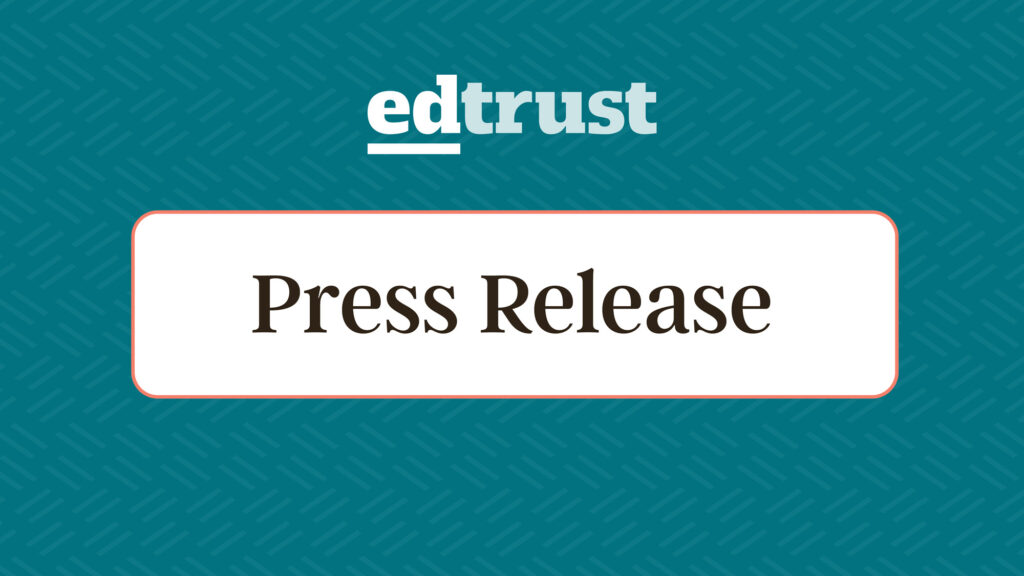New Federal Higher Education Overhaul Needs Improvements to Truly Hold Low-Value Programs Accountable
EdTrust releases policy brief on strengthening higher education accountability framework

CONTACT: media@edtrust.org
FOR IMMEDIATE RELEASE
New Federal Higher Education Overhaul Needs Improvements to Truly Hold Low-Value Programs Accountable
EdTrust releases policy brief on strengthening higher education accountability framework
WASHINGTON – The One Big Beautiful Bill Act (OBBBA) will hold programs accountable for the value they provide to their graduates for the first time, but it’s missing key aspects that would help deliver on its promise. A new EdTrust policy brief, Making the New Higher Education Accountability Framework Pay Off, analyzes the law’s accountability framework and recommends stronger protections to ensure that working-class students and families are not going into debt for low-value programs.
For years, policymakers and advocates across the political spectrum have been calling for greater accountability in higher education. After all, student debt has ballooned to more than $1.7 trillion, loan defaults are on the rise after years of COVID-related payment pauses, graduation rates vary widely across institution types, and the unemployment rate is rising for recent college graduates.
“Students are being asked to take on more debt than ever, often for programs that don’t deliver the economic outcomes they were promised,” said Roxanne Garza, author of the brief and director of higher education policy at EdTrust. “This law intends to hold programs accountable and provide transparency for students, but without more robust protections, it risks leaving the students who stand to benefit the most behind. Higher education should be a ladder to opportunity, not a bridge to nowhere.”
The brief outlines several key recommendations:
The new accountability framework under OBBBA takes effect on July 1, 2026, allowing policymakers and institutions time to engage with its implementation, particularly through the Department of Education’s negotiated rulemaking process. See EdTrust’s comments here. EdTrust’s recommendations aim to strengthen accountability policies, ensure equity, encourage transparency, and promote meaningful student success.
###